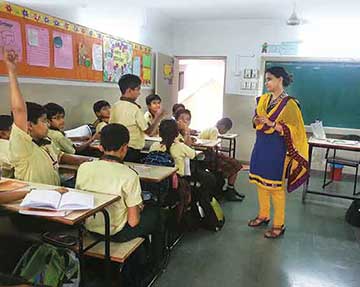Geetika Saluja
The 21st century demands that we all know how to think – to reason, analyze, weigh evidence, solve problems and to communicate effectively. These are no longer skills that only the elite in the society must master: they are essential survival skills for all of us.
 In schools today, students are not learning how to think; they don’t care about what they read, nor are they learning to communicate ideas orally or in writing. They memorize names and dates in history but cannot explain the significance of historical events. How often do our students write essays in which they put forth their own interpretation of a piece of literature or observation and inference of an experiment without being told what to observe? They may be learning to add, subtract, and multiply, but they have no understanding of how to think about numbers. Our schools were never designed to teach students how to think. If a few children learn such skills it is more by accident than by design. How often does a teacher ask the class, “So what do you think about…”? I don’t mean once in a while, I mean every day.
In schools today, students are not learning how to think; they don’t care about what they read, nor are they learning to communicate ideas orally or in writing. They memorize names and dates in history but cannot explain the significance of historical events. How often do our students write essays in which they put forth their own interpretation of a piece of literature or observation and inference of an experiment without being told what to observe? They may be learning to add, subtract, and multiply, but they have no understanding of how to think about numbers. Our schools were never designed to teach students how to think. If a few children learn such skills it is more by accident than by design. How often does a teacher ask the class, “So what do you think about…”? I don’t mean once in a while, I mean every day.
The longer our children are in school, the less curious they become. Time spent on test preparation and memorizing content knowledge comes at the expense of teaching students to use their minds well. For the most part, teachers haven’t been trained to teach students to think. There is a need to start teaching critical and creative thinking as soon as children are capable of abstract thinking. They need to learn the inquiry process.
In order to grow from being ‘knowledge accumulators’ to ‘knowledge processors and creators’, students need to master both “left brain” skills – such as critical thinking and problem solving, accessing and evaluating information – and “right brain” skills – such as curiosity, imagination, and creativity.
The author is Academic Coordinator, St. Kabir School, Naranpura. She can be reached at geetika.b.saluja@gmail.com.
